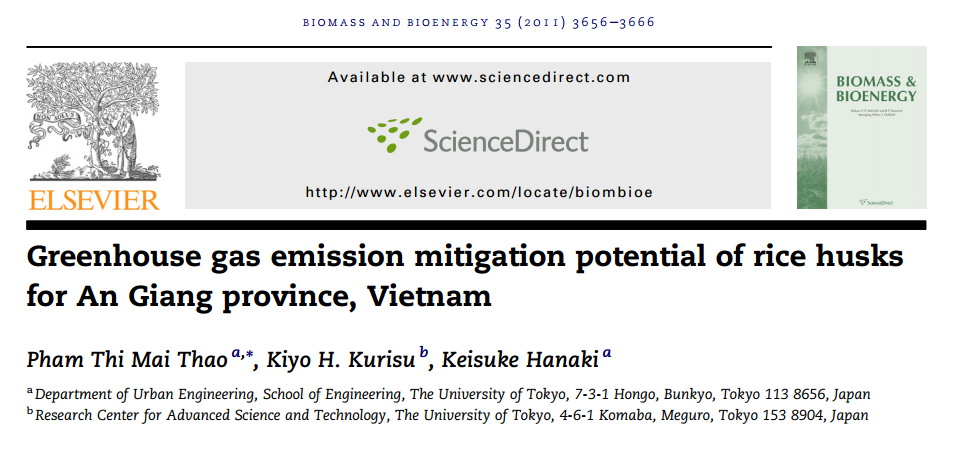
2011 | Elsevier
To evaluate the greenhouse gas (GHG) emission mitigation potential of rice husk utiliza-tion, a life cycle inventory analysis was conducted for 18 scenarios. The allocation of fuels, other than rice husks, was decided based on the current demand for and supply of rice husks. To prevent the bulky nature of rice husks, briquette production is also discussed. In the power generation scenarios, the differences between two capacities (5 MW and 30 MW) were analyzed. The results of analysis reveal that CH4 and N2O emissions from open burning contribute largely to the current GHG emissions. Therefore, ceasing open burning alone has a large GHG mitigation potential. The use of briquettes, even though GHG is emitted during the production stage, can still contribute to GHG emission mitigation as the production is more efficient than rice husk burning or dumping. In the power generation scenarios, most GHG emissions were derived from the combustion process. Therefore, gasification which has a little combustion process is the most efficient GHG mitigator. Both the replacement of grid electricity by generated electricity, and the replacement of diesel oil by pyrolyzed oil show larger GHG mitigation potentials than what could be derived from open burning cessation alone.
These guidelines aim to provide a framework for preventing recycling-related plastic and pellet losses, and environmental leakage. The guidelines are useful for a broad spectrum of stakeholders, particularly policymakers and key plastic recycling actors, including informal waste pickers, junkshops, consolidators, and plastic recycling craft villages. The application of these guidelines is expected to contribute to improving production efficiency in the plastic recycling chain while preventing plastic leakage into the environment.
The manual aim to support both formal and informal recycling enterprises in preventing plastic pollution by advocating best practices and promoting proper housekeeping within informal recycling facilities.
The main goal of this study is to evaluate plastic and pellet losses and leakage from the logistical handling and pre-processing operations of informal recycling groups in Thailand, focusing on recovered post-consumer plastic waste and factory processing operations. The focus areas of this study are the Nonthaburi Municipality and Pattaya City.
This study was conducted following on a simplified three-step approach: 1) collect and analyse data and information relevant to plastic leakage from informal sector recycling; 2) engage with key stakeholders; and 3) disseminate the outcomes of the study.
Situation Assessment Report on Plastic Leakage Prevention from Formal and Informal Recycling Facilities, Manila City and Iloilo City - Philippines
Situation Assessment Report on the Prevention of Plastic and Resin Pellet Leakage from Formal and Informal Recycing Factories, Hanoi - Vietnam